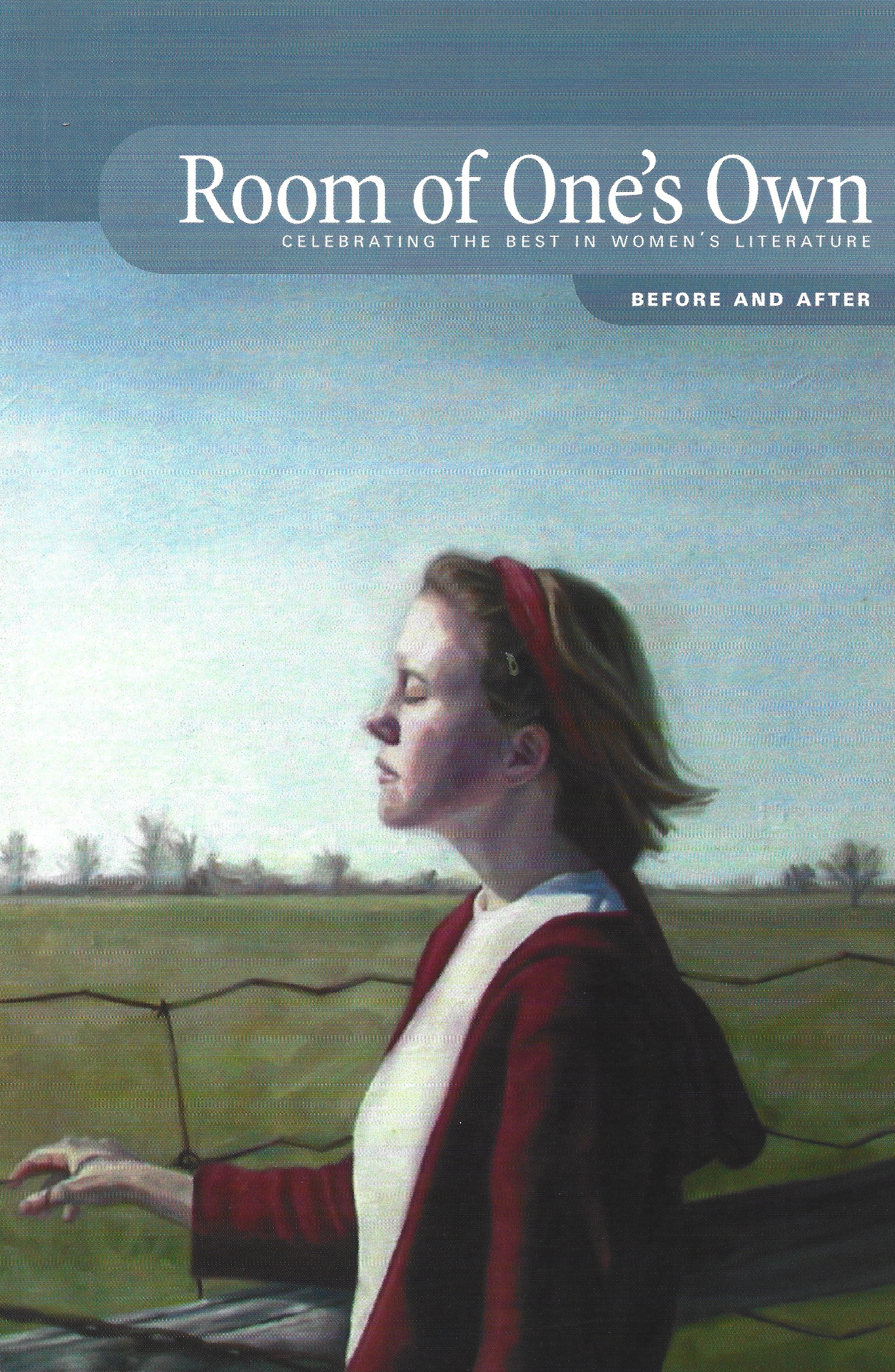Before and After | 26.3
2003
Digital only; out of stock in print.
A year and a half ago. I moved to Vancouver from Winnipeg, where I was born and raised. I didn’t have any specific reason for moving; I loved Winnipeg and my family and friends there. I just felt I needed a change.
Moving alone was a bit scary at first, but mostly I was—and still am—excited about new people to meet, places to explore and challenges to face. But as happy as I am in my new, chosen home, the change has been double-edged: I now live in the absence of many loved ones and I miss places I once took for granted. I’m not sure I’ll ever have the same in-my-blood familiarity with Vancouver that I had with Winnipeg.
Sometimes we initiate changes in our lives, like I did with my move, or we can at least anticipate and try to control them. Some changes take place slowly without our even knowing they are happening or when they started. Other changes occur suddenly and without warning. Regardless of the origin or timing, change often blends a new opportunity with the loss of something we once knew. The stories, poems and artwork in this issue of Room of One’s Own depict lives in the moments before or after some significant change. Almost all of the pieces leave us wondering what comes next.
One of the biggest changes in life comes from falling in or out of love. In her poem “Slow Burn,” Alexis Easley shows us how love can grow over time, without our realizing it, while Louisa Howerowe, in “First Month in Trident” asks, “Can you draw a line from the moment you start loving someone to the moment you stop?” In Bindu Suresh’s “The Moment Before You Reached Me,” we watch a young woman leave a relationship just before she opens herself to falling in love at all.
Motherhood is one of the most significant changes in a woman’s life. The anticipation of a new child is the focus of several of the stories and poems in this issue. Michele Rowe’s poem “The Seventh Month” captures the anxiety of a pregnant woman who asks, “when I call you / will you come skipping / across broken waters / to land gently at my thighs / or will one of us be broken?” Jennifer D. Munro’s creative non-fiction “Fill in the Blank” is an honest, moving account of undiminished hope for a child despite multiple miscarriages. Patricia Brody. Pamela Porter and Clare Devlin each have contributed poems that S describe how a mother and child’s relationship can change over time. I thought I would / never lose touch those / ten hands ten knees / knuckling my body lying / in summer grass wanting / one moment unclambered, says the mother in Devlin’s “Lose Touch.”
Aging and ill health bring changes that we can t choose, can’t anticipate and can’t fully control, as witnessed by the poetry of Penelope Harwood, Stephanie Sicotte. Renee Norman, Winona Baker and Meredith Trede, who, in her poem “After the Biopsy,” says, “We wonder how / things can ever be the same.”
On a happier note, this issue also features stories and poems inspired by social changes that have brought about new opportunities for women. Coincidentally, in both Elizabeth Blanchard’s short story “The Colour of Life Itself” and Pamela Porter’s poem “The Roses of Winter,” we see young girls and women pursuing their love of hockey, a pursuit that may not have been possible without broader social change.
Some of life’s changes are more spiritual in nature. In their short stories “Trapper Ray” and “Block 56,” Amanda Hale and Sarah Butler portray women who experience subtle, yet significant, inner transformations while in circumstances of self-imposed exile; one travelling alone in the Yukon and northern British Columbia, the other working as a treeplanter. Both women have brief, mystical encounters with other inhabitants of their isolated surroundings, and we are the only witnesses to the reason why Hale’s character says. “Everything looks different in the morning”.
Finally, other authors in this issue, such as Sydney Smith, Claire Turcotte and Lyse Champagne, give us snapshots of their characters’ lives in the hours and moments before some unknown change seems certain to take place. In Champagne’s “Cuckoo’s Nest,” we watch Françoise, the main character, struggle with a decision that will change her and her family’s lives. We are left to wonder about what happens to Françoise and her family, and what we would have done in her place.
Sometimes it’s easy to recognize an important change by its before and after: before and after a move, before and after two people meet, before and after a baby is born. But most of life’s defining moments are harder to pinpoint. We may not always be able to tell where before ends and after begins, but in-between is surely where we grow.

$10.00
Additional information
| Delivery | Canada, USA, International, Digital |
|---|
In this issue: Virginia Aulin, Winona Baker, Elizabeth Blanchard, Patricia Brody, Sarah Butler, Lyse Champagne, Clare Devlin, Alexis Easley, Kai Fierle-Hedrick, Veronica Gaylie, Alisa Gordaneer, Amanda Hale, Pearl Hamilton, Penelope Harwood, Heather Horton, Louisa Howerowe, Moberley Luger, Jennifer D. Munro, Renee Norman, Lana Okerlund, Pamela Porter, Michele Rowe, Alexander Sean (Sasha) Saint-Aubin, Stephanie Sicotte, Sydney Smith, Bindu Suresh, Patricia Ann Treat, Meredith Trede, Claire Turcotte, Annette Schouten Woudstra